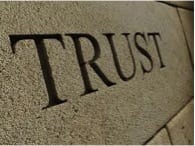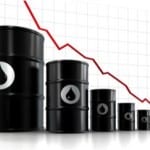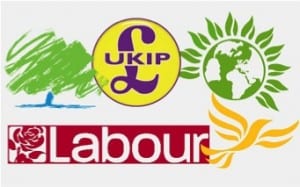It’s been a year of highlights, low points and upheavals across the political and business landscape in the UK and around the globe.
As the Ketchum team peers into our Christmas crystal ball we look back at some of key issues which piqued our interest over the last twelve months, and what we have to look forward to in 2015.
2014: three issues that caught our interest…
 1. It’s all about referenda
1. It’s all about referenda
The Scottish referendum poll may all have been over by 19 September, but the ‘No’ result has had far reaching consequences for the future of United Kingdom in a way that no politicians, commentators or business people ever envisaged.
A post-referendum bounce has galvanised the losing ‘Yes’ campaign and the Scottish National Party has enjoyed a surge in membership, trebling to over 80,000 by the time Nicola Sturgeon was appointed as Scotland’s new first minister and party leader in November.
The ‘Yes’ campaign ran a highly effective strategy, whereby businesses were often both nervous and reluctant to come out in favour of the Union. This resulted in a dangerously imbalanced debate with many in the pro-union business lobby only publicly pledging their support to the ‘No’ camp in the final days of the campaign, and being forced to graphically outline the potential ‘doomsday’ scenarios that could be precipitated by an ‘independent’ Scotland.
It was totemic intervention, that delivered a much greater injection of confidence in the ‘No’ campaign than any political rhetoric or desperate last ditch attempts by Westminster politicians to shift the needle in support of the Union.
Under closer analysis it demonstrates the depths of mistrust that people have for the political class (and way beyond Scotland) and it was only when business spoke about the economic impact and potential job losses that the ‘No’ campaign regained ground to win – voters are still overwhelmingly persuaded by what hits their pockets.
Turning to a potential EU referendum in 2016, if the Conservatives win the 2015 general election, the pro-EU campaign team needs to rally business now and get it publicly talking up employment, investment opportunities and the concrete benefits that EU membership brings.
If they leave it as late in the day as was the case in Scotland, the war will be lost before the first skirmish, and the potential consequences for a UK outside the EU could dwarf anything that was considered for an independent Scotland.
2. Trust and transparency; the key pillars for every business
 Following on from 2013, several businesses have stolen the media limelight for unwanted reasons and in almost every case it’s where they’ve fallen down on trust and transparency.
Following on from 2013, several businesses have stolen the media limelight for unwanted reasons and in almost every case it’s where they’ve fallen down on trust and transparency.
Top of the list is Tesco. Former CEO Philip Clarke struggled in his tenure to turn around the ailing supermarket giant in the face of fierce competition from the discounters Aldi and Lidl which led to his departure. But it was the £250m black hole in the supermarket’s finances, uncovered in September, which truly left Tesco’s reputation in question. Share value plunged and investors took flight, as the full and chaotic account of Philip Clarke’s turbulent stewardship was scrutinised by the media and investors alike.
Dave Lewis, Tesco’s new CEO, an external hire from Unilever, took full advantage of his role as an outsider and quickly set about clearing the decks, looking to identify all and any potential negative issues. If the size of the challenge gets to the level it has with Tesco, then the constant drip, drip, drip of negative stories only prolongs the agony. If there’s bad news that needs to come out, get it out quickly and in a controlled manner.
Time will tell if Lewis can halt the slide in Tesco’s fortunes, but his prompt, if not painful remedial care, has at least begun to repair the retailer’s battered reputation.
Stubbornly refusing to bend to political opinion will always make you an easy target among media commentators (aided by briefing from political insiders) and it’s been another challenging year for the three ‘super brands’ Google, Starbucks and Amazon in the UK when it comes to paying tax.
Whether it’s legally acceptable or morally indefensible, the debate rages on and is guaranteed to ignite media interest, especially in the tabloids.
How the ‘super brands’ react to the Chancellor George Osborne’s new 25% tax levy on profits generated in the UK by multinational companies which kicks in next April will be fascinating to monitor.
The new levy, criticised as probably unenforceable by the Office for Budget Responsibility, the independent financial watchdog, now poses these businesses with a direct choice to contravene the new levy introduced next April, or pay the UK’s standard 21% corporate tax rate.
Expect the media to trawl through these brands’ financial updates with relish in 2016-17…
3. Down, down, down…the falling price of oil and its wider implications
 As 2014 comes to a close one business story that is picking up a head of steam is the continuing fall of the price of crude oil. Now 40% down in twelve months this should be welcome news for British consumers, albeit it’s unlikely there will be any real terms reduction in price at the petrol pump unless the Treasury reduces its tax take which isn’t likely given the state of the UK’s public finances.
As 2014 comes to a close one business story that is picking up a head of steam is the continuing fall of the price of crude oil. Now 40% down in twelve months this should be welcome news for British consumers, albeit it’s unlikely there will be any real terms reduction in price at the petrol pump unless the Treasury reduces its tax take which isn’t likely given the state of the UK’s public finances.
But here lies the real threat of falling oil prices. The price reflects a decline in demand, especially in China, the economic power house that has underpinned global growth over the last decade. Even a tapering of China’s annual growth forecasts (to around 7%) is denting investor confidence and without China setting the pace, more of the burden falls to the United States and the European Union to pick up the slack.
For the EU this is a tall order. Already in recession, the Eurozone economies risk entering a period of deflation akin to what haunted Japan in its ‘lost decade’ as consumers refuse to spend and businesses delay investment.
Whether we like or not, oil prices are a key barometer of economic strength and investor confidence, and combined with sovereign governments implementing sustained spending cuts, growing annual deficits, debt repayments and potentially a period of deflation, it’s small wonder that commentators are questioning the wider impact of the price of oil.
Keep a close watch in early 2015. If the price continues to fall, politicians won’t stand idle. Just what solutions they can deliver remains to be seen…
…and three to excite us in 2015
1. COP 21
 In December 2015, COP 21, better known UN Climate Change Conference will take place in Paris and represents the next annual global review of the 1997 Kyoto Protocol regulating climate change. But there will be an added sense of purpose to COP 21, as the UN organising committee has outlined the overriding objective of the conference will be to achieve for the first time in 20 years of UN negotiations, a binding and universal agreement to cut greenhouse emissions.
In December 2015, COP 21, better known UN Climate Change Conference will take place in Paris and represents the next annual global review of the 1997 Kyoto Protocol regulating climate change. But there will be an added sense of purpose to COP 21, as the UN organising committee has outlined the overriding objective of the conference will be to achieve for the first time in 20 years of UN negotiations, a binding and universal agreement to cut greenhouse emissions.
While any agreement (if reached) will probably last until 2035, climate campaigners remain sceptical that it will succeed sufficiently in stemming the tide of global warming. Last weekend the pre-cursor talks in Lima ended in positive agreement, albeit still leaving significant challenges which will need to be overcome in Paris. The fact that 194 nations who attended Lima all assented to the agreement means many of the tougher decisions were simply postponed, but there is momentum.
One of the most notable achievements was the new classification of nations, which rather than be divided along traditional lines of rich and poor, now reflects the complex configuration of developing nations who are responsible for the bulk of emissions.
While the real impact of COP 21 won’t be clear until well into 2016, the UNCCC doesn’t have a monopoly in driving forward this agenda. More than 73 countries and thousands of businesses have signed a World Bank declaration supporting the pricing of carbon emissions. Coupled with the European Union Emissions Trading Scheme and China rolling out a pilot scheme in several provinces, there is clearly a growing appetite for direct action.
But often it’s individual brands that prove to be the real trailblazers when it comes to shining a light on corporate conduct, driving behaviour change, and delivering on climate change is no exception.
Technology giants Apple, Facebook and Google have all committed to powering their huge datacentres located around the world with renewable power.
Businesses of the calibre of General Motors, Nike, BT, Unilever and IKEA have initiated a coalition under the banner of ‘We Mean Business’ pressing policymakers to deliver regulatory frameworks and policy to realise a low carbon economy.
2. Hyperlocal targeting: providing consumers with a genuinely bespoke experience
 ‘Hyperlocal’ allows marketers to use the data collected from a smartphone’s GPS to target consumers according to their location. In 2014, mobile advertising became optimised to the physical location of the consumer.
‘Hyperlocal’ allows marketers to use the data collected from a smartphone’s GPS to target consumers according to their location. In 2014, mobile advertising became optimised to the physical location of the consumer.
Facebook was one of the first to attempt to ‘go local’ through its acquisition of Rel8tion in 2011, whose primary business was ad targeting. Facebook will launch local awareness ads for US businesses in the New Year and is expected to be rollout globally throughout 2015.
In 2015, the volume of data available will only become even greater, and the possibilities will increase. With wearable technology and smart home devices broadcasting their datasets, the combination of basic radius targeting, retargeting based on tracking and contextual targeting will be combined and recombined.
Hyperlocal targeting will make marketing much more effective, bespoke and tailored to our locations combined with our interests. It’s a formidable combination and very exciting.
3. Finally …. the General Election
 Five months out and next May’s election looks set to be the closest in living memory. In reality no one has the faintest idea of the result – and if they tell you they do, they are lying! At Ketchum, we’re going to save ourselves the embarrassment of trying to predict the result, but what we can do is outline some of the delicious scenarios that could well play out:
Five months out and next May’s election looks set to be the closest in living memory. In reality no one has the faintest idea of the result – and if they tell you they do, they are lying! At Ketchum, we’re going to save ourselves the embarrassment of trying to predict the result, but what we can do is outline some of the delicious scenarios that could well play out:
- The Conservatives returned with the most votes but not the most seats: potentially the most likely outcome, but David Cameron will then be faced with having to either form another coalition or attempt to go it alone with a minority administration. Both scenarios have their pitfalls. Who would agree to go into coalition with Tories, and could they command enough seats? If Cameron tries to govern as a minority government he’ll be forced to rely on other minority parties through an agreement based on ‘confidence and supply’ to enable him to get government legislation through parliament.
- Labour wins the election with an overall majority: for the past four years the opinion polls pointed to this outcome as the most likely, especially given Labour only needs to be 2.6% points ahead of the Tories on a uniform swing to secure a majority (in contrast the Tories need to be 11.1% ahead to be the majority party) and the failure of the coalition to redraw the constituency boundaries has given Labour a significant advantage in requiring less votes to win many urban seats compared to rural seats. But the Scottish National Party has thrown one mighty big spanner in Labour’s works in Scotland. Where once Scotland was ‘the’ bastion of Labour support, it is now under sustained attack, and leeching votes to the SNP.
- The Liberal Democrats are ‘wiped out’. Predictions of the fate the Lib Dems are being eagerly expounded by media commentators and political foes. As the junior coalition partner, the Lib Dems will be castigated by those many Labour voters who previously voted for them purely based on tactical grounds. Just how many seats they will haemorrhage will be difficult to call, as they have excelled in ‘digging in’ and stubbornly refusing to lose their seats, but that was before they were a party of government and the main repository of protest votes. Those days are over.
- Election Day could easily throw up the Scottish National Party as the big winners. Deprived of their opportunity to lead an independent Scotland, the nationalists have their sights set on tearing the heart out of Labour’s support north of the border and decimating the Liberal Democrats support base for entering into government with the Tories. The backdrop is tailor made for the party and with former First Minister Alex Salmond poised to return to the House of Commons as an elected MP, he will continue to be the thorn in the side of each of the main UK political parties.
- Perhaps the greatest unknown is how the United Kingdom Independence Party will fare come polling day? Nigel Farage’s party has stormed to success in the European Parliament and local authority elections in the last two years, and topped off by victories in Clacton and Rochester & Strood by elections this autumn; they should be riding high with confidence. But is UKIP’s sheen beginning to fade? For a period, and a prolonged period, the media indulged UKIP as they offered an alternative to the anodyne politics peddled by the mainstream parties, but now they have elected MPs and a growing bandwagon of support, UKIP has to grapple with the challenges of turning from a political protest group into a professional mass political vehicle, and it’s difficult.
- Last, but by no means least, the remaining parties with Westminster representation, notably the Democratic Unionist Party, Plaid Cymru and the Green Party will all have a key role to play, especially if the Tories or Labour are forced to govern as a minority administration. In fact the ongoing breakdown in power sharing in the Northern Ireland Assembly between the DUP and Sinn Fein will only have heaped further discomfort on David Cameron’s shoulders as the DUP will be explicit in what they want in return for any support they offer to a Conservative government.
As we suggested in our opening explanation, trying to predict the outcome of next year’s election is impossible, but there’s a lot to look forward to and explains why politics really is exciting.


